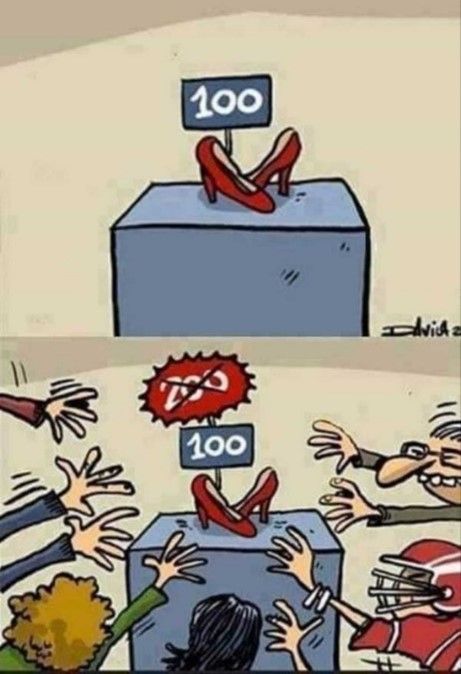Consumer protection in a new way
Are you an entrepreneur or a customer? If so, pay attention now. The Consumer Protection Act has undergone a major amendment, which we present to you in this article.
From 1 July 2024, the new wording of the Consumer Protection Act is in force, which aims to:
- modernise existing consumer legislation and bring it in-line with European legislation,
- the rights and obligations of consumers, merchants and other persons when offering, selling and providing products, when concluding and performing a consumer contract and in relation to it,
- the competence of public authorities in the field of consumer protection and the position of consumer organisations in resolving consumer disputes.
Please note that despite the amendment to the Consumer Protection Act, the legal regulation of consumer contracts remains preferentially regulated in the Civil Code.
Terminological unification of terms
The amendment to the Act is intended to ensure terminological uniformity at the level of individual Member States as well as at the level of the European Union. Thus , the term "seller" is dropped from the law and replaced by the term "trader".
Extension of deadlines
In the original legislation, the consumer had the right to withdraw from the contract without providing a reason within 14 days, in the case of contracts concluded during unsolicited visits to households or during a sales event. In this case, it was necessary to strengthen the position and protection of the consumer, where the legislator extended the withdrawal period from 14 days to 30 days.
However, even for an extended period, it will be the shortest possible time, and the trader will always inform the consumer in writing about this period and the reasons why it exceeds 30 days.
Discounts and sales
In the interest of consumer protection, it was also necessary to prevent artificially increasing the prices of goods before various discounts and sales (e.g. Black Friday). In practice, there have often been situations where the retailer lured the consumer to a discount at the time of discounts, but it was not actually a discount, but on the contrary was only the original price, which the retailer increased before the sale in order to achieve a discount at the time of the sale.

Under the new law, it is the obligation of every trader to state the previous price in the notification of the reduction in the price of goods.
The only exception is goods that are subject to rapid deterioration or perishability. For example, cut flowers and other live flowers, food and beverages with a short shelf life or minimum shelf life.
The only exception is goods that are subject to rapid deterioration or perishability. For example, cut flowers and other live flowers, food and beverages with a short shelf life or minimum shelf life.
Prohibition of deceptive conduct
The prohibition of deceptive conduct means a prohibition on marketing goods as identical to goods in another EU Member State. This means marketing of goods that presents goods as identical to goods marketed in other Member States of the European Union, if these goods have a substantially different composition or characteristics.
Information obligation and fake reviews
Another new feature is stricter transparency requirements. Traders are now obliged to extend the information obligations, namely the obligation to inform the consumer about the after-sales service, including the obligation to provide the trader's contact details where it will be available to the consumer (phone number and e-mail) or the obligation to inform the consumer about a reduction in the price of goods (discount).
At the same time, transparency is intended to provide consumers with greater certainty when shopping online, thereby strengthening the relevance of published ratings (reviews). From 1 July 2024, traders will be obliged to inform consumers whether and how they carry out verification by consumer ratings.
In the final reflection, greater transparency will have an impact on consumer decision-making when choosing a trader, as well as on the consumer's overall purchase.

Sanctions
In addition to the above improvements, the new regulation introduces new principles for imposing sanctions. The aim of the new principles is to prevent the imposition of liquidated damages. The new penalty rates are determined by a percentage of the trader's turnover. For example, the supervisory authority may impose a fine of between EUR 200 and 2% of the trader's turnover for the previous accounting period, up to a maximum of EUR 200,000, for a breach of a legal obligation.
As far as e-shops are concerned, the amendment introduced a new sanction, namely the deletion or change of content published in the e-shop. In the worst case, even the deletion of the domain itself.
Second chance
What if the trader voluntarily makes a redress for the benefit of the consumer? The amendment to the Consumer Protection Act also thought about the so-called second chance of the trader.
It is the introduction of a number of institutes in the Consumer Protection Act, which are aimed at refraining from imposing a sanction in cases where traders voluntarily cease violations of consumer rights and legal regulations, and carry out remedies on their own for the benefit of injured consumers.

Complaint
Currently, the issue of defects in goods is contained in the Civil Code and the regulation of the complaint procedure in Act No. 250/2007 Coll. on Consumer Protection.
In order to simplify and align this issue with European law, the parallel regulation of the complaint procedure in the Consumer Protection Act was deleted with effect from 1 July 2024.
In the new wording, the regulation of the complaint procedure is left in the Civil Code.
PLEASE NOTE that as of July 1, 2024, it is necessary to update your Complaint Procedure (RP) and General Terms and Conditions (GTC), or modify other processes that you have set up in relation to the sale of goods and services to consumers.
This update applies to entrepreneurs whose business is retail, or if you regularly enter into a relationship with consumers, then these changes also apply to you.
If you are interested, do not hesitate to contact us.
Keywords: #protection #new #retailer #seller #trader #discounts #sales